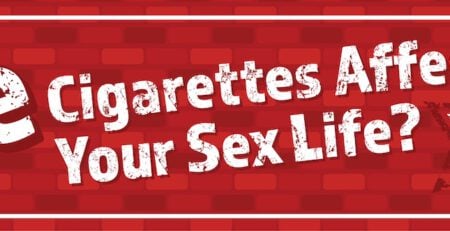Is Vaping Good Or Bad For Your Teeth?
11/04/2018
By
Jonny Stevenson
The ongoing debate regarding vaping and its impact on oral health remains a complex issue, with opinions varying among experts and individuals alike. The subject is often marred by confusion, and a definitive consensus is elusive. There is a lack of substantial evidence to firmly declare vaping as detrimental to oral health, but it is equally challenging to find a vaping guide that confidently asserts its harmlessness.
To assess whether vaping has positive or negative effects on teeth, it is essential to delve into the concept of vaping itself, distinguish it from traditional tobacco smoking, and understand its potential implications for dental health. To initiate this exploration, let’s begin with the definition of vaping.
Understanding Vaping
The vaping market in the UK has witnessed substantial growth in recent years. This trend is attributed to the perception that vaping differs from smoking tobacco, which contains harmful components like tar. These substances are known to jeopardise a smoker’s oral health.
Vaping involves the inhalation of vapour produced by an electronic device, commonly referred to as a vaporizer or e-cigarette. A typical vaping device comprises a battery with a vape tank or pod, transforming liquid into vapour. E-liquid, also known as vape juice, serves as the primary material used in the device. Importantly, it may or may not contain nicotine. Unlike tobacco, vapour generated by a vaporizer typically emits a pleasant aroma.
The Effects of Tobacco on Oral Health
Numerous studies have previously underscored the adverse health consequences of tobacco smoking. As per a report from the American Dental Association, the nicotine and tar found in tobacco have a detrimental impact on oral health, often leading to teeth staining. Regular tobacco users are also prone to developing gum disease and various other oral health issues.
What Are the Implications of Vaping for Teeth?
In the context of vaping, nicotine may or may not be present in the vapour, and its impact on oral health is notably less severe than that of tobacco. This distinction is supported by a study involving tobacco smokers who transitioned to vaporizers over a period exceeding two months. The study involved over 100 participants, closely monitored by researchers to examine the effects of vaping. The findings revealed that those who had previously smoked more than 20 cigarettes per day experienced improved oral health when they switched from traditional cigarettes to vaporizers. Researchers also noted a reduction in bacterial plaque on the participants’ teeth surfaces.
The study’s conclusion pointed to the enhancement of oral health among former smokers, attributing it to their avoidance of tobacco inhalation through vaping.
Tips for Mitigating Oral Health Risks Associated with Vaping
Considering that some vaping materials contain nicotine, it is crucial to address oral health risks related to vaping. Vapers can adopt several straightforward measures to maintain a healthy smile:
Post-vaping, it is advisable to consume ample water. Dental experts point out that many oral health risks arise from dehydration. Proper hydration helps reduce the likelihood of potential oral health issues.
Given that nicotine is the primary concern, vapers can switch to e-liquids without nicotine or opt for those with lower nicotine levels. Many vape shops in the UK offer low-nicotine e-liquids to minimise nicotine intake.
Practising thorough dental hygiene, including regular and improved brushing, can partially alleviate the oral health risks associated with vaping.
Individuals who vape frequently should also schedule regular dental check-ups to monitor their oral health and ensure vaping does not adversely affect their teeth.
Conclusion: Is Vaping Safe for Teeth?
Vaping can be considered safe for teeth under specific circumstances and with proper precautions. For instance, e-liquids that are nicotine-free or low in nicotine do not pose a threat to oral health. Furthermore, users who vigilantly care for their teeth each time they vape can help ensure a positive oral health outcome.
Author
Jonny has over 10 years experience in the vaping industry. Key area of expertise are Mixology, Regulatory and Technology. Being one of the new inal members of the team, makes Jonny a fountain of knowledge when it comes to vaping.
RELATED
Posts
18
Jul
Guide to Avoid Dry Hit When Vaping
By now, we all know that dreaded feeling – going to hit your vape and tasting nothing but the flames of hell,...
read more
18
Jul
Make Your Own Vape Juice: The Complete Guide
We know that with the rising costs of everything, people are looking for ways to save money and one of the best...
read more
9
Feb
Do e Cigarettes Affect Your Sex Life? The Truth Is Out!
Have you ever watched an old movie and found a couple smoking after sex? Many people do this in real life too....
read more
26
Oct
Menthol Cigarettes Banned: What Are My Options?
From Wednesday 20th May 2020, Menthol Cigarettes and Rolling Tobacco will be banned throughout the UK in a bid to deter young...
read more
25
Oct
What is the difference between “Freebase” And “Salt” Nicotine?
Have you heard talk about nicotine salt eLiquids? Don't understand what freebase nicotine is? Then you've come to the right place. We're...
read more
28
Apr
Safe Vaping Explained! A Guide To Ohms Law
Is vaping safe? This question has dominated headlines since the introduction of the first modern e-cigarette in the mid-2000s. While nothing can...
read more
5
Apr
Vape Pod Systems: How Are They Different From Vape Mods?
The vaping world is currently buzzing with the rising trend of vape pod systems. Vapers are enamoured with the portability and compact...
read more
1
Feb
Vape 101: Best Way To Prevent Your Coils From Burning
Vaping is a healthier alternative to smoking, but the cost of flavours and burnt coils can make it an expensive habit. Burnt...
read more
17
Jan
How to Fill a Vape Tank with E Liquid: Step by Step Guide
Vaping enthusiasts derive immense pleasure from watching the voluminous clouds of flavoured e-liquids swirl. As these clouds fill the slender device and...
read more
10
Nov
Everything You Need For DIY Coil Building
Whether it's E Liquid or a vape kit, the ability to customise them to your preferences and personalisation is a fantastic advantage,...
read more




